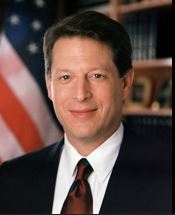Albert Gore, commonly known as Al Gore, is a notable American politician, environmentalist, and Nobel laureate who has had a significant impact on U.S. politics and global environmental issues. His career spans decades, during which he has influenced public policy, international relations, and environmental activism. In this article, we’ll explore Al Gore’s life, career, and contributions, offering a detailed yet easy-to-understand overview.
Early Life and Education
Al Gore was born on March 31, 1948, in Washington, D.C. to Albert Gore Sr., a U.S. Congressman, and Pauline LaFon Gore. Growing up in a politically engaged family, Gore was exposed to public service from a young age.
- Education: Gore attended Harvard University, where he earned a Bachelor of Arts degree in Government in 1969. His time at Harvard was marked by his involvement in various political and social causes. Following Harvard, he served as an officer in the U.S. Army, stationed in Vietnam, which influenced his views on military and foreign policy.
Political Career
Al Gore’s political career began in earnest when he was elected to the U.S. House of Representatives in 1976. He represented Tennessee’s 4th congressional district and later the 6th district. His tenure in Congress was marked by his commitment to environmental issues, technology, and government reform.
- Congressional Service: Gore was known for his efforts to advance environmental protection and technological innovation. He played a key role in establishing the National Information Infrastructure, also known as the “Information Superhighway,” which laid the groundwork for the modern internet.
- Vice Presidency: In 1992, Al Gore was elected Vice President of the United States under President Bill Clinton. During his time as Vice President (1993-2001), Gore was a leading advocate for environmental policies and technology advancements. He promoted initiatives such as the “Reinventing Government” program aimed at improving efficiency in federal agencies.
- Presidential Campaign: In 2000, Gore ran for President of the United States as the Democratic nominee. The election was one of the closest in U.S. history and was decided by a narrow margin in Florida. Although Gore won the popular vote, he lost the Electoral College to George W. Bush, which led to a controversial recount and legal battles.

Environmental Activism
After his vice presidency, Al Gore focused heavily on environmental issues. His work in this field has earned him international recognition and numerous awards.
- An Inconvenient Truth: In 2006, Gore released the documentary film “An Inconvenient Truth,” which addressed global warming and climate change. The film was highly influential, bringing widespread attention to environmental issues and establishing Gore as a leading voice in climate advocacy. It won the Academy Award for Best Documentary Feature and helped raise global awareness about the dangers of climate change.
- The Climate Reality Project: Al Gore founded The Climate Reality Project in 2007, an organization dedicated to addressing the climate crisis. The project focuses on education, advocacy, and mobilizing people to take action on climate change.
- Nobel Peace Prize: In 2007, Gore was awarded the Nobel Peace Prize jointly with the Intergovernmental Panel on Climate Change (IPCC) for their efforts to build up and disseminate greater knowledge about human-caused climate change and to lay the foundations for the measures that are needed to counteract such change.
Contributions to Technology and Innovation
Al Gore’s contributions to technology and innovation extend beyond his environmental work. His vision for the digital age has had a lasting impact on how technology is integrated into everyday life.
- Information Superhighway: Gore’s advocacy for the development of the internet and digital infrastructure was instrumental in shaping the modern digital landscape. His support for the “Information Superhighway” helped pave the way for the internet’s growth and the digital economy.
- Books and Publications: Gore has authored several books on politics, environment, and technology. His writings, including “Earth in the Balance” and “The Assault on Reason,” reflect his deep understanding of complex issues and his commitment to addressing them through public policy and activism.
Personal Life and Legacy
Al Gore’s personal life is as notable as his professional career. He has been married to Tipper Gore since 1970, and they have four children together. Despite their separation in 2010, they remain involved in various charitable and environmental causes.
- Legacy: Al Gore’s legacy is marked by his tireless efforts to address climate change, his contributions to technology and governance, and his role as a prominent public figure. His work has influenced environmental policy, shaped public discourse on climate issues, and inspired a new generation of activists and leaders.
- Continuing Impact: Gore continues to be an influential voice in environmental advocacy, public speaking, and writing. His ongoing work focuses on climate change, renewable energy, and sustainable development, contributing to the global effort to combat environmental challenges.
The Enduring Influence of Al Gore
Al Gore’s career spans a range of fields, from politics to environmental activism, and his contributions have had a lasting impact on the world. As a former Vice President, presidential candidate, and Nobel laureate, his work continues to shape discussions on climate change, technology, and public policy. By examining his life and achievements, we gain insight into the significant role he has played in advancing environmental awareness and technological progress.
This article provides a comprehensive overview of Al Gore, blending historical context, career highlights, and his lasting impact. Whether you’re familiar with his work or new to his contributions, understanding Al Gore’s influence offers valuable insights into the intersection of politics, technology, and environmental advocacy.
| Albert Gore |
